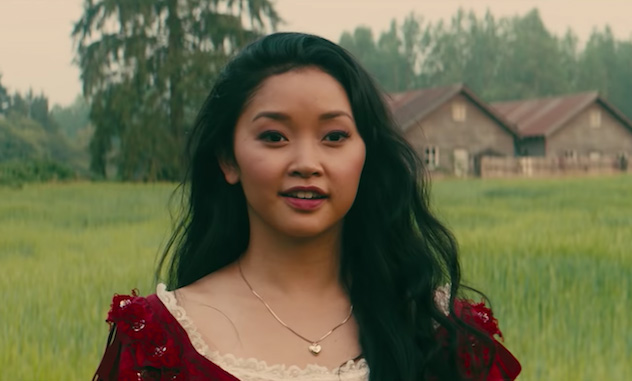Lara Jean Covey is like any other teenager. She’s got intense crushes, a best friend and a mortal enemy — an experience familiar to any American girl. In Jenny Han’s young adult novel “To All the Boys I’ve Loved Before,” that American girl just happens to be ethnically half-Korean.
For the on-screen adaptation, now on Netflix, it would have been easy, and sadly even expected, to slot a white actor into the role. Thank goodness that didn’t happen. Instead, Lana Condor, best known as Jubilee in “X-Men: Apocalypse,” was cast as Lara Jean. Here, director Susan Johnson talks about what it was like to tell an Asian American story on film.
What drew you to “To All the Boys I’ve Loved Before”?
There are several themes that I really loved in the movie. I’m a middle child of three girls, like Lara Jean. I understood her thought process and how her family was important to her. Plus, my older sister and younger sister have the same relationships as Lara Jean and her sisters. But I didn’t write letters.That’s a brilliant idea…unless they’re sent out, of course.
What did you want to accomplish with this film?
I just wanted to tell a story about a girl who was relatable on all levels. And I didn’t want her ethnicity to be an exclusive part of the story. The movie is not about her exclusively being Asian American. But I still wanted her culture to be a part of who she was. I think we found a good balance.
Was there ever a time that Lara Jean and her sisters were just going to be white?
Not when I was part of it; that was never a part of the discussion. The focus was very much on keeping it Asian American. I was happy that we stayed true to the book. It’s very much about three Asian American girls. I studied as much as I could for what that would mean for the family life.
You once said “Success begets opportunity,” about the uphill battle of women in film. Do you think that applies to Asian American visibility in film as well?
One hundred percent. There’s that saying, “If you can’t see it, you can’t be it.” That’s really important. Whitewashing is horrible. All I can speak to is the female side of things. I’ve experienced so much gender bias in my job all the time. I think that once the powers that be that do the hiring realize the mass market is changing, everything will be better. The landscape is slowly changing. I believe in the adage, “Never say never.” Try to be the best you can in whatever it is. You’re going to hear a lot of “No.”
How can people in the industry correct these biases?
Changing the ethnicity of characters to diverse characters, or changing characters that were written as male to female, is the way to go. How boring would it be to see white faces in movies all the time? I’m a white face and I’m bored by it.
What are you most pleased about with the movie?
Lana’s story. She’s from Vietnam. She and I donated to the orphanage where she was from. We did four scholarships through a foundation to put four girls through school. That was really important to her. Lana is this beautiful, amazing human being. Every movie finds its lead actor, and it’s a perfect marriage if you get a great film. She’s such a great fit for this character. Part of that is probably her journey to get to where she is today. It says a lot about who she is as a person and how beautiful life can be if you stay true to yourself.









